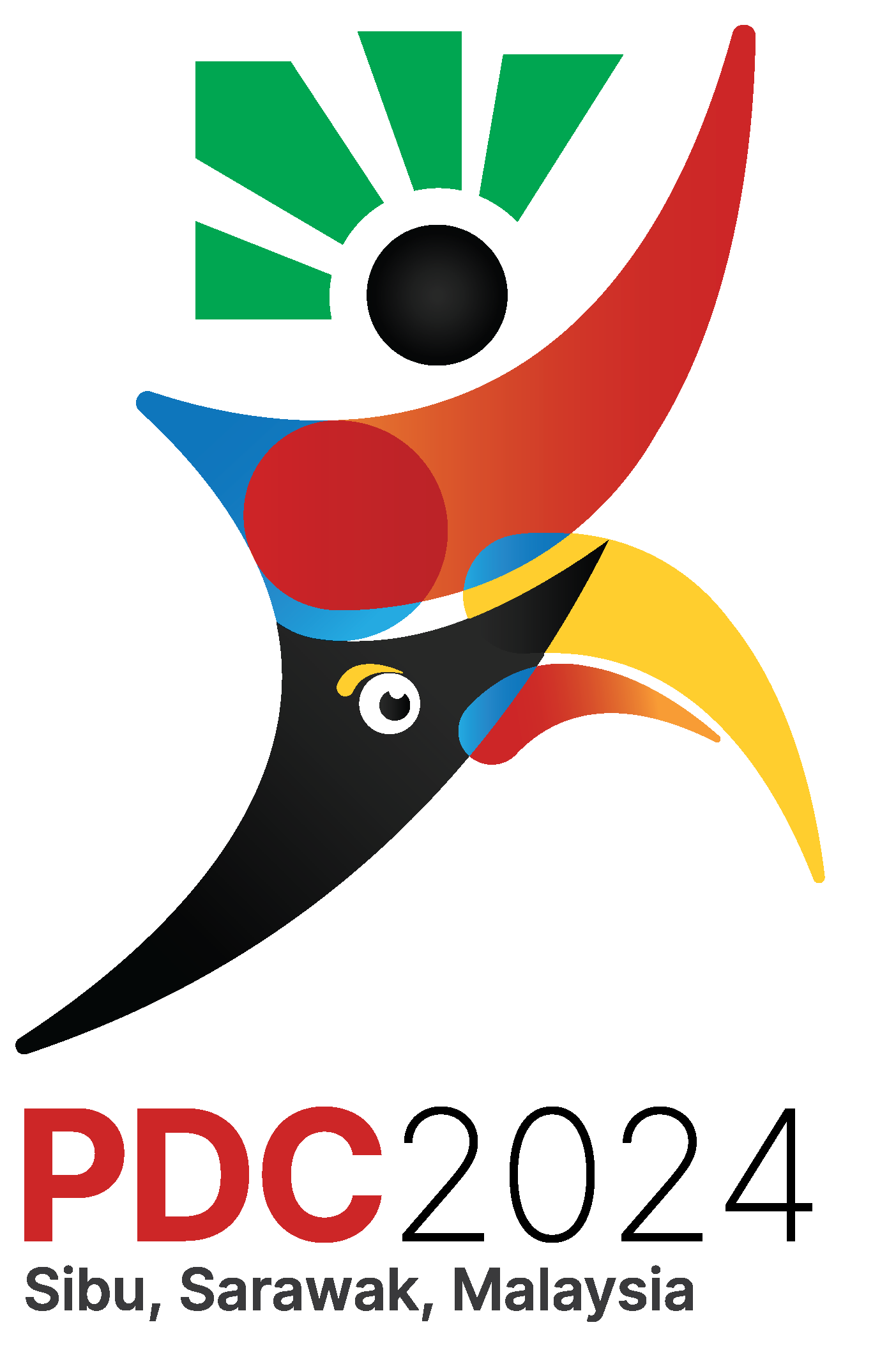

Menu
Accepted Exploratory Paper
Author Instructions
Each presenting author will have 12 minutes to convey their EP which is followed by 3 minutes of Q&A from the audience.
Please be at the assigned room for your session 10 minutes before the scheduled time to check the overall technical setup.
Also, make sure your presentation is self-contained (e.g. a backup copy in PDF on a USB drive) so that it can be easily presented on another computer if needed.
Session Structure
90 minutes x 6 session (first 3 sessions with 5 papers, last 3 sessions with 4 paper in each session)
- 5min Opening words
- 12min EP + 3min QA
- 12min EP + 3min QA
- 12min EP + 3min QA
- 12min EP + 3min QA
- 12min EP + 3min QA (5th paper only the first three sessions)
- 10min Closing questions
Programme
Session 1: Virtuality
Session Chair: Alvin Yeo Wee
- Reconfiguring Participatory Design to Resist AI Realism, Aakash Gautam
- Empowering Stakeholders with Artificial Intelligence in Participatory Design: A Systematic Review, Simone van den Broek, Alwin de Rooij, Jan de Wit & Supraja Sankaran
- Acting out in real and virtual environments: comparative analysis for future workstyle design, Kentaro Watanabe, Bach Quang Ho, Yusuke Kishita, Maiko Kobayakawa & Mai Otsuki
- Beyond Urban Challenges – Virtual Reality Tools in Participatory Design Processes, Luisa Hilmer
- Primary School Students Designing for Future Relationship Building in Extended Realities: Encounters with Live Human Holograms, Naska Goagoses, Heike Winschiers-Theophilus, Jason Twapewa Odell Mendes, Selma Aula & Erkki Sutinen
Session 2: Indigenous and Community Settings
Session Chair: Kasper Rodil
- Towards local design intentions: A reflection on participatory design with Indigenous Dayak people in East Kalimantan, Juhri Selamet
- Laying the groundwork: Building trust with a marginalised community in Mumbai, India, Bishal Goswami, Ilya Fridman, Xavier Ho, Arnab Jana & Venkatesh Rajamanickam
- What is the weather story? Both-ways learning in co-designed weather and climate communication workshops in northern Australia, Angelina Aspra Aquino, Nicola Bidwell, Steven Bird & Ian Mongunu Gumbula
- Revitalising Indigenous Heritage Through Art Participatory Practices, Paulina Michnowska & Tariq Zaman
- Transformative Narratives: Fostering Ubuntu-Inspired Participatory Design Practices, Jaydon Farao, Melissa Densmore & Hafeni Mthoko
Session 3: Commons and Infrastructure
Session Chair: Noris Mohd Norowi
- Commoning the Once Abandoned Commons: Co-Designing Hyper-Local Circularity in Rural Japan, Ryota Kamio, Kae Hirose &Valentina Vasile
- Commons By Design: making room for life in the designed world, Abby Arwen Mellick Lopes & Stephen R Healy
- One Thousand Years of Katsuobushi: Infrastructuring with More-Than-Humans, Edward Masui & Hazuki Kosaka
- Social Cartographies of the City, from a Gender, Care and Feminism Perspective, Carlos Cobreros, Stefania Biondi & Deng Cynthia
- More-than-Human Participatory Approaches for Design: Method and Function in Making Relations, Ann Light
Session 4: Designing Technology
Session Chair: David Lamas
- Connecting with the Unconnected: Collaborative Design for a Mobile Learning App in Rural Malaysian Secondary Schools Amidst the Covid-19 Pandemic, Noor Raihan Ahmad, Azrina Kamaruddin, Noris Mohd Norowi, Rahmita Wirza & Ain Arissa Zainudin
- Evolving PD tools through iteration: Analyzing templates used for multiple participatory renewable energy projects, Goeun Kuu-Park, Cindy Kohtala & Andrea Botero
- Ethical Participatory Design: collaborative app development as indigenization of software engineering, Annika Hinze, Danny Paruru & Alvin Yeo
- Enough with Newness: On Re-centering African “Users” in HCI Research and Design, Shaimaa Lazem & Muhammad Adamu
Session 5: Dimensionalities
Session Chair: Chris Muashekele
- Coexisting with Ancestors– Elongating Participation between “Pasts” and “Futures”, Shin Okamoto & Daijiro Mizuno
- Transformations in participants – Toward citizen-led participatory speculative design to create preferable data-driven workplaces in Japan, Masako Kitazaki & Riichiro Take
- Power over Ba of Emptiness in Participatory Design in Japan, Mika Yasuoka & Yurie Kibi
- Invisible Designing: Emotional and Affective Labour in Relational Participatory Practices, Joyce Yee, Yoko Akama, Areli Avendano Franco, Ko Le Chen, Hirotake Imanishi, Yuko Kikuchi, Sarah Kushinsky, Nikki Ralston, Sarah Teasley & Khemmiga Teerapong
Session 6: Design Practices
Session Chair: Lizette Reitsma
- The Researcher’s Plight: Guilt and Shame in Participatory Design and Action Research, Lars Rune Christensen
- Consciously drifting: Exploratory design practices that embrace influences from local community, Fumiya Akasaka, Yuko Miki & Kyosuke Sakakura
- Participatory Design Sprints – Employing PD Principles in a Condensed Format, Katrine Holm Kanstrup, Christian Dindler, Ole Sejer Iversen, Maarten Van Mechelen & Marie-Louise Wagner
- PD as in Prefigurative Design: a ludic framework beyond participation, Valentina Volpi, Stuart Cockbill, Ksenija Kuzmina & Val Mitchell

